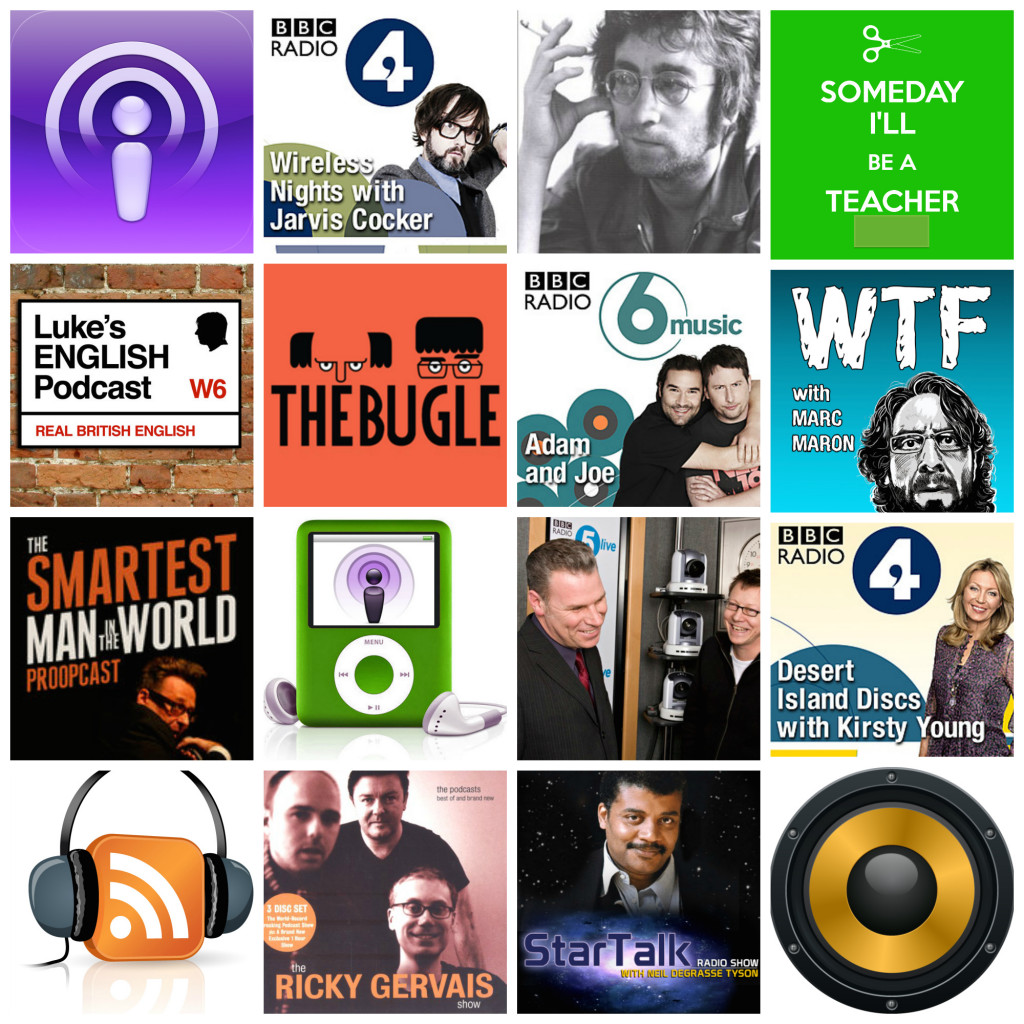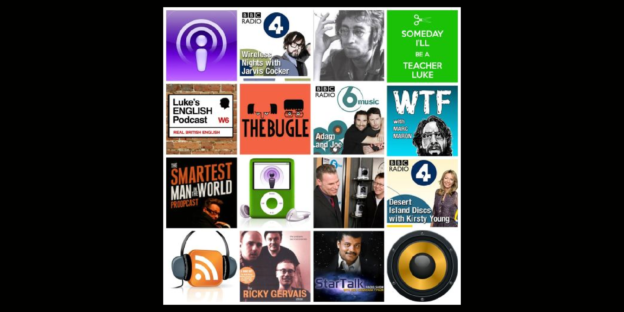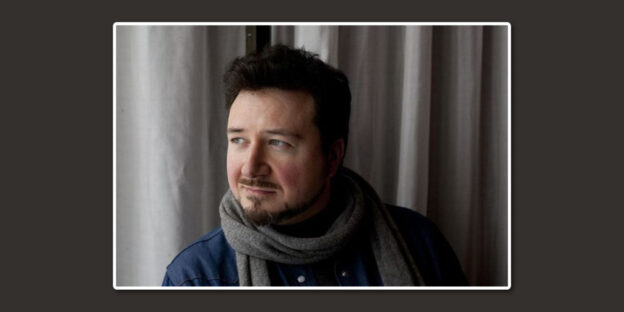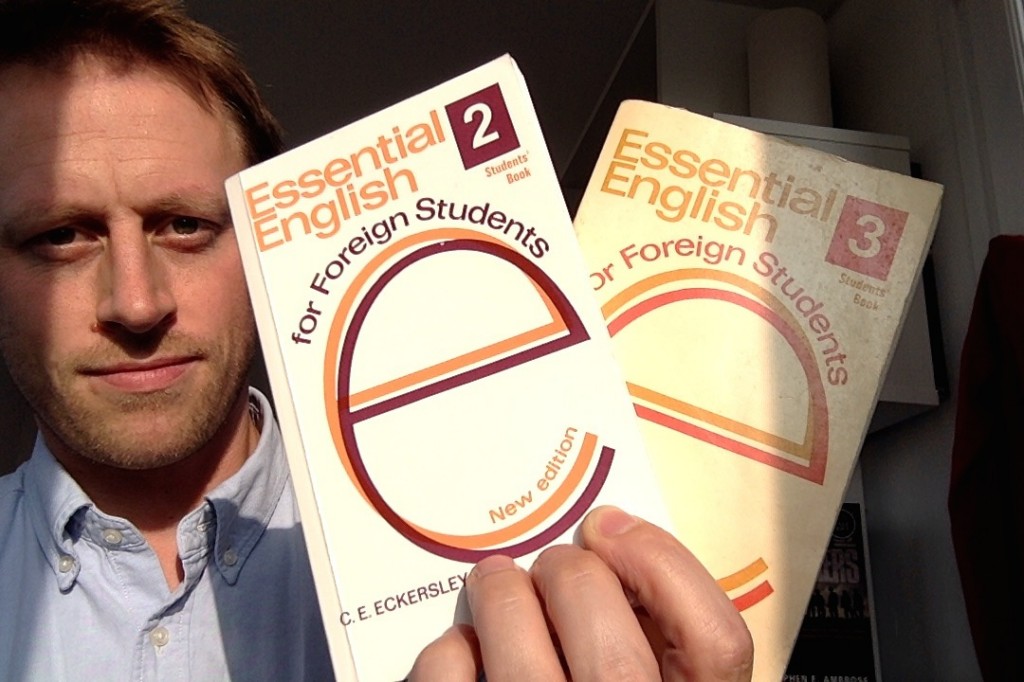Should Scotland become an independent country? Let’s look at the context, the arguments for & against and the possible outcomes of independence. Right-click here to download this episode.
 I know you might be struggling to catch up with all the latest episodes of the podcast – I’ve just uploaded 8 competition episodes, but I suddenly had to record this episode. I’m in a hurry to upload this one, because it’s quite timely and current, and important.
I know you might be struggling to catch up with all the latest episodes of the podcast – I’ve just uploaded 8 competition episodes, but I suddenly had to record this episode. I’m in a hurry to upload this one, because it’s quite timely and current, and important.
On 18th September the people of Scotland will vote in a referendum to decide if Scotland should remain a part of the UK or become independent. If they vote “yes” and Scotland does become independent from the UK it would cause massive changes to the way the UK is organised. It would be the biggest change in UK history for hundreds of years. It could change everything – not only the lives of the Scottish people, but also the lives of the English, the Welsh and the people of Northern Ireland. In short – this is a massive story for the UK.
This episode contains some audio extracts from this page of The Guardian’s website. I have included these extracts for educational purposes only. The main purpose of this website is to help people with their English. If, however, it is deemed that this is a breach of copyright, I will remove those audio extracts.
I might be a bit late to the subject but I have to talk about it on the podcast.
When you listen to this, the votes may have already been counted, and you’ll know the outcome. But still, I need to talk about it right now. This is a big deal for my country, and it has to be acknowledged.
You might be thinking – oh, but politics is boring. Well, a lot of people find it boring, which is a pity – but really, it shouldn’t be boring. It’s not really an entertaining subject – I mean, there are no jokes in here, but the subject is so important, and really it’s not just about politicians lying and boring the pants off everyone. Really, politics is about the way decisions are made that affect the lives of ordinary people. So, my point is – politics is not boring, it’s fascinating, but you have to focus a bit in order to keep up with it.
In terms of language – in this episode you can expect vocabulary relating to matters of political science and sovereignty, but I’m also planning to play you some extracts of people talking about the subject from different points of view, and all of them are Scottish, so you’re going to hear a few Scottish voices in this episode – and that’s always good for your ears. It’s always good to hear a variety of accents, as you know. Also, we’re going to hear a few politicians advocating their position for or against Scottish Independence – and it’s interesting to notice the ways in which they structure their arguments.
The eyes of the world are on Scotland right now. Let’s look too.
Throughout this episode I’m going to play you short speeches by various people with things to say on this subject. All of them are from Scotland.
Let’s hear now from AL Kennedy, a novelist from Dundee, who gives a kind of overview of this situation.
Also, the situation in Scotland mirrors the situations of many other nations around the world that are seeking independence. Perhaps you can relate to the Scottish situation if you have a similar example in your country.
It makes me think of these things:
How do you define a nation?
If you could start from scratch, and you could create a new country, what kind of constitution would it have? Would it be a monarchy, a republic? Would your nation be part of a union or federation of other nations? How much administrative control would you give to that union? What would your economy be based on? Who would be your trading partners? What currency would you choose? Would you need an army? What kind of foreign policy would you have? How would this affect your neighbours? Would it help them or harm them? Do you care about your neighbours? Why or why not? What is the historical background of your relationship with your neighbours? To what extent does that define your foreign policy towards them? What’s the economic situation in your country? If things are tough and there’s no money – who is to blame for this situation? Should certain people be punished? How can you be sure you’re blaming the right people? What are the dangers of becoming isolated from the rest of the world? What are the dangers of pushing nationalistic propaganda on your people? How will you be seen by the rest of the world? Would you want your new nation to be friends with America, China or Russia? Is it possible to be friends with everyone? Would you like to be in the European Union? What about that little island which exists just off the coast of your country? Are you ready to send your young men out to die fighting for it? Is it worth risking everything in order to feel that old scores have been settled, and that you can proudly hold up your head and say that you’re living in a free country? Who’s going to be the new leader of your new nation? Do you trust this person? Who’s going to be the head of state? How about The Queen? Does it matter what celebrities and rock stars say about your new nation and your policies? Do you have oil in your new country? Are you happy to live in affluence in your country while your neighbours suffer in poverty? Do you have an obligation to look after them? Are flags important? Does it matter what your flag looks like? How about the language people speak in your country? Is it more important that they speak the traditional local language than to be able to communicate with the rest of the world? If a small region wants to govern themselves, should they automatically have the right to do it? Who can really make these decisions with 100% authority and 100% certainty? Don’t people have a right to full representation in a fully functioning parliament? Does democracy even work, or is it too compromised? How are the corporations and capitalists involved in the running of your nation? Is it fair that they have so much influence on decision making? How much of this is about greed, money and capital gain? How much of it is about tribalism and nationalistic rhetoric?
These are the questions which come to mind when I think of this subject, and I think they’re all pretty universal questions that you could apply to any nation. Perhaps you could consider how this applies to your home country, but for now let’s look at Scotland. The land of tartan, kilts, haggis, beautiful rugged countryside, scotch whisky, the Edinburgh festival, gorgeous accents, incomprehensible drunks, Trainspotting, James McAvoy, the Loch Ness monster and so many other wonderful things which I am simply unaware of.
Contents of This Episode
1. A general overview of the Scottish Independence situation: Everything you need to know about Scottish Independence.
2. The arguments for independence.
3. The arguments against independence.
4. The outcome of independence – how would everything change?
1. General Overview
The following are notes and sentences which I used when planning and recording this episode. It is not a full transcription.
18 September.
Biggest constitutional decision in their nation’s history.
“Should Scotland become an independent country?”
What is the UK? What does independence mean?
Scotland & England were united on 1 May, 1707. That’s when the Parliament of Great Britain was formed. They set up shop in Westminster, London. Seem fair?
Ireland joined the union in 1800. Later, in 1920 the ‘southern’ counties of Ireland broke away, leaving just Northern Ireland.
Why did Scotland join?
England didn’t want the Scots to choose a different monarch than the one on the English throne. Scotland & England had been rivals for centuries. They wanted to put a stop to it. Scotland joined primarily for economic reasons. The country was broke. They’d tried to colonise Panama in the late 1690s, throwing all their sovereign wealth into the attempt, but it failed and they lost all their money. England agreed to bail them out in return for union. Perhaps the Scots now feel they’re in a stronger economic position than they were 300 years ago. We’ll see. Perhaps the Scots felt like they were forced into the union in the first place, and they had to pay for their economic mistakes by giving up some sovereignty and decision making power.
The home rule movement – There’s been a home rule movement for ages in Scotland, since the mid-1850s people have been campaigning for some kind of independence. This became more realistic for Scotland in the second half of the last century – after the 1960s basically, which is when the UK decolonising former colonies, particularly in Africa. The Scottish people clearly felt like they wanted a slice of that pie as well.
In the 1990s, under Tony Blair’s government, a ‘devolution agreement’ was signed. Devolution means decentralisation, and it involves Westminster giving more home rule power to Holyrood (Scotland’s parliament), so they can make more decisions that relate only to Scotland, without having full sovereignty. Westminster still can make large decisions that affect many aspects of life in Scotland, but Scotland can also vote on local laws. It’s not full independence.
The leader of the Scottish National Party – SNP is called Alex Salmond. He’s been campaigning for a referendum on Scottish Independence for years. In 2011 his party won control of the Scottish Parliament. This gave him a lot more power to push for a referendum on independence. The UK government agreed to give them the power to hold a referendum. You might think – why did they let them do it?? Why didn’t David Cameron just block it? Well, it’s democracy isn’t it? If the people want it, he can hardly refuse to give it to them. He’s not a dictator. Still, Cameron probably gave him the power because he thought the Scottish people would vote “No”.
So here we are. The referendum is happening on 18 September. A “yes” vote could massively change the UK.
Do Scottish people actually want to be independent?
What do the polls say?
Just a month ago it was about 65% “no” and 35% “yes”. So most people didn’t want independence.
But things have changed as the campaigning has increased.
Now, polls show 49% “no” and 51% “yes”. It seems that slightly more people want to be independent now. In fact, the majority now want independence.
Polls can be misleading. That poll could scare more people into voting “no”. It could also make the “yes” voters more complacent.
Also, in the final moment, people tend to vote for the status quo.
So, I still believe that a “no” vote is more likely, but I could be wrong. It could easily be a “yes” vote.
We’ll find out probably within about 12 hours of the referendum closing, maybe even less.
If it is a “yes” then Alex Salmond has suggested that Scotland’s Independence Day will happen in March 2016.
The SNP would have a massive party after the referendum, and then some very serious and difficult constitutional planning would take place. Currency? Join the EU? How to pay off the national debt? UK flag? Passport control? Ownership of oil fields? Nuclear submarines? Olympic team? The Queen as head of state? We’ll look at this in a bit more detail in a moment.
If “no” then things will still change a lot. Westminster has promised to give Scotland even more devolved power (devo-max) which would allow them to control much more than they do now, without giving them full sovereignty.
Here’s some complex stuff about how the UK is governed, but it’s important to understand this situation. The UK is 4 countries, united. England, Scotland, Wales and Northern Ireland. The government for the UK resides in Westminster, London – in the Houses of Parliament. IN the House of Commons there are seats which represent regions across the UK – small regions all over England, Scotland, Wales & Northern Ireland. Each region is called a ‘constituency’ and for each constituency there is a seat in Westminster, and sitting in each seat there is an MP who was chosen by the people of that constituency. They discuss and vote on decisions that affect the whole UK. Laws are passed for the UK as a whole, but then Scotland, Wales & N.Ireland have ‘devolved parliaments’ of their own – and they can make local laws of their own, or adapt some of the laws from Westminster. England doesn’t have a devolved parliament, so England can’t adapt UK laws – because they’re the same! This is really complicated and weird, and we’ll come back to it.
Anyway, the main point is, there are more English MPs in Westminster than Scottish, Welsh or N.Irish ones. This means that they have more power over decision making. So, the decisions of Westminster tend to favour England, because more English MPs are voting. So, the Scots feel a bit annoyed by this. They don’t feel properly represented, even though they have some local power, it’s not enough for them.
There are two campaigns for and against independence. The campaign ‘for’ is called “Yes Scotland”. The campaign against? It’s not called “No Scotland” – it’s called “Better Together”. Let’s look at their arguments.
2. “Yes Scotland” – Scotland should become an independent country.
The Scots will be able to decide how their money is spent.
Scotland has oil reserves in the North Sea. If independent, Scotland would be able to claim these reserves of oil, and they could make Scotland one of the wealthiest nations in Europe. At the moment, those oil reserves are claimed by Westminster and exported or sold to energy companies to be used across the whole of the UK. Some people argue that careful managing of this resource could allow Scotland to become a super-rich country, like Norway or Switzerland.
But the money question is not just related to oil. It also means that the Scots would be able to carefully manage how much money they give to their citizens (welfare) and how it would deal with its pensions debt. The “yes” campaigners believe that the Scottish people don’t get fair treatment or representation by the government in London, and independence would allow them to make economic decisions that would be more suitable for Scottish people. For example – winter allowances.
Nicola Sturgeon
MSP and deputy leader of the SNP
The Scots would be able to get rid of spending on the nuclear weapons programme and use that money on welfare for people.
The Scottish people would be represented by the people they vote for
Generally speaking, England tends to vote conservative, and Scotland votes left. The further north you go, the more people vote Labour or SNP. The further south you go, the more people vote for the conservatives. So in elections the Scots never vote for the Conservatives, but they often get Conservative governments because of all the English people who vote for them, and there are more English people than Scottish people. So, time and time again the Scottish people are represented by Tory governments that they didn’t vote for. So, ultimately, independence would make Scotland a more democratic place – they’d be represented by the people they vote for. A lot of Scottish people are really pissed off with the Conservatives.
The Conservatives are right-wing. They like to cut public spending, so the money doesn’t go to communities in Scotland that really need funding. Also, the Conservatives are made up of elitist, English, posh people who went to exclusive schools in the south of England. Most Scottish people don’t like them, don’t feel they care about them, and don’t want to be represented by them. They’re from a completely different world to most Scottish people. Why should they have them in government. Thatcher, for example, didn’t really seem to care about the Scottish people. She introduced policies that caused massive unemployment and poverty there, and she did it in order to break workers unions in order to get more control over the economy, and who did she serve by doing that? Big businesses who are probably owned by rich conservative English people from the south.
Lesley Riddoch
Community activist
Perhaps this strong “Yes” campaign is a reaction to the strict privatisation and austere economic measures of our current Conservative government. I really hope the Tories don’t ruin everything by alienating the Scottish people.
Ultimately, many people believe that independence would create a more fair and equal society in Scotland, a place that would be able to deal with problems like child poverty and health care. Scotland could redirect more money into areas that are important for its people.
3. The “No” Campaign – aka “Better Together” – Scotland should not become an independent country.
Independence is not a magic solution to all of Scotland’s problems.
It’s easy to get carried away by nationalistic sentiment. It can blind people to the reality of what is going on – that independence could cause more problems than it would solve.
“No” campaigners believe that the SNP’s policy for the future is full of unrealistic and impossible promises, and projections based on a very unpredictable view of the future for Scotland. It’s very tempting to see independence as a great thing – the Braveheart version – but in reality it could be complex and problematic.
Think of the difficult economic situation that exists in Europe at the moment. Is this a good time to go off alone – a small nation in the context of huge global uncertainty. It seems risky from an economic point of view, and the oil is not a permanent solution. It’s likely to run out fairly quickly, and then what?
Johann Lamont
MSP and leader of the Scottish Labour party
Why would Scotland want to break away from friends in the UK? Don’t they care about the people in the rest of the UK who need their support? Independence could be a very selfish act.
Also, the “no” campaign are attempting to remind people that Scotland has an integral part of the way the UK has been built over the last 100 years.
Alistair Darling
MP, former chancellor of the exchequer and head of the Better Together campaign
Devolution has been a success, and it will continue to be – with further devolution on the way. There’s no need to break up the entire UK. They’ll get the powers and representation they want in the form of further devolution.
Ruth Davidson
MSP and leader of the Scottish Conservatives
4. The Outcomes of Independence – What would happen if they vote “Yes”?
It’s not completely clear as all the details have not been decided yet.
Here are some possibilities:
Scotland would not be part of the UK any more. It would be “The United Kingdom of England, Wales and Northern Ireland” but surely, the Welsh and N.Irish would not feel very happy about being dominated by the English, without the balancing force of Scotland on board. They’d probably follow Scotland’s example – or they’d be stuck in a difficult situation.
Scotland would become a republic, and the Queen would not be welcome there any more.
Scotland would keep the Queen as head of state, like in Canada.
They’d keep the pound (not what the UK wants).
They’d take the Euro (not what Scotland wants).
They’d get a new currency (risky, and which one?)
They’d join the EU – but why swap one union for the other? It’s not real independence.
They’d try and strike a deal and join some kind of federation with nordic countries like Norway.
They’d want to get rid of all the military technology, nuclear submarines and so on.
They’d build their own army.
They’d erect border control on the border with England. (unlikely)
It might be necessary to show your passport on entry (for English people). (unlikely)
They might impose greater taxes and tariffs on goods entering the country. (unlikely)
It’s more likely that border controls and trade would stay the same, and would be seamless with the rest of Britain/N.Ireland.
They’d have to negotiate with England their responsibility for the UK national debt – it could be a lot!
They’d need to negotiate their share of North Sea oil. That would be complex because they’d discover it was owned by corporations who would not want to give it up without a fight (a diplomatic one).
All these things would take a great deal of time, effort, discussion, negotiation, law making, admin – by the time they get their independence as they imagined it, the world could be quite a different place and being on their own might not seem like such a good idea any more.
Also, it would effect life in England. Without Scottish votes, the Labour party would be screwed. The right-wing would dominate politics. The Conservatives would be rampant without the balancing force of the left-wing Scottish vote. Also, England might argue that it’s time for them to have a devolved parliament of their own – a kind of English Council or something. That would almost certainly be controlled by the conservatives (maybe led by Boris Johnson). The whole country would shift rather dramatically to the right. The tories should always be held in check by left-wing voters. A right-wing England would not be a pretty place, in my opinion. Do the tories really care about ordinary people? They would probably privatise some of the great institutions that make England a decent country – the National Health Service, The BBC – it could be a big change for the worse. The heads of corporations who went to school with high-ranking conservatives would benefit, those in need (the poor) would feel the squeeze.
Also, what about our flag – what would it look like? It’s not a big deal really, but I quite like the Union Jack. It would be a pity to lose it.
It would be a big punch in the stomach for so many of the things we know and love about the UK.
But, perhaps change is inevitable.
Personally, I hope Scotland stays in the UK – but I hope we can arrange a deal in which they get the powers and representation they crave. I personally think we’re better together, but I realise that I’m saying that as an Englishman.
But that’s the situation, and my opinion.
What do you think?
Please leave your opinions as comments.
FINAL RESULT
Since publishing this episode, the people of Scotland voted “No” for independence, which means that Scotland will remain a part of the UK but Westminster will now give further devolution to Holyrood as promised.
For more information on the result of the referendum and what’s going to happen next, click the links below.
Scottish Independence .gov.uk
Scottish Government Website
![]() This episode is not about podcasts for learners of English. It’s also not about podcasts made by LEPPERS. It’s just some podcasts that I love to listen to and that I’d like to share. They aren’t for learners of English specifically. This could mean they’re hard to understand for you. However – it could be really good for you to at least try listening to one of these podcasts and see if they click with you. It could be really good for your English, especially if there’s one that really grabs your attention.
This episode is not about podcasts for learners of English. It’s also not about podcasts made by LEPPERS. It’s just some podcasts that I love to listen to and that I’d like to share. They aren’t for learners of English specifically. This could mean they’re hard to understand for you. However – it could be really good for you to at least try listening to one of these podcasts and see if they click with you. It could be really good for your English, especially if there’s one that really grabs your attention.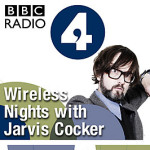 10. Wireless Nights with Jarvis Cocker (UK)
10. Wireless Nights with Jarvis Cocker (UK)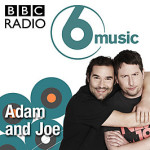 9. Adam & Joe (UK)
9. Adam & Joe (UK) 8. John Lennon – The Rolling Stone Interviews (UK)
8. John Lennon – The Rolling Stone Interviews (UK) 7. Startalk Radio (USA)
7. Startalk Radio (USA)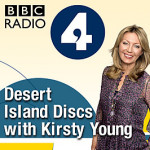 6. Desert Island Discs (UK)
6. Desert Island Discs (UK)